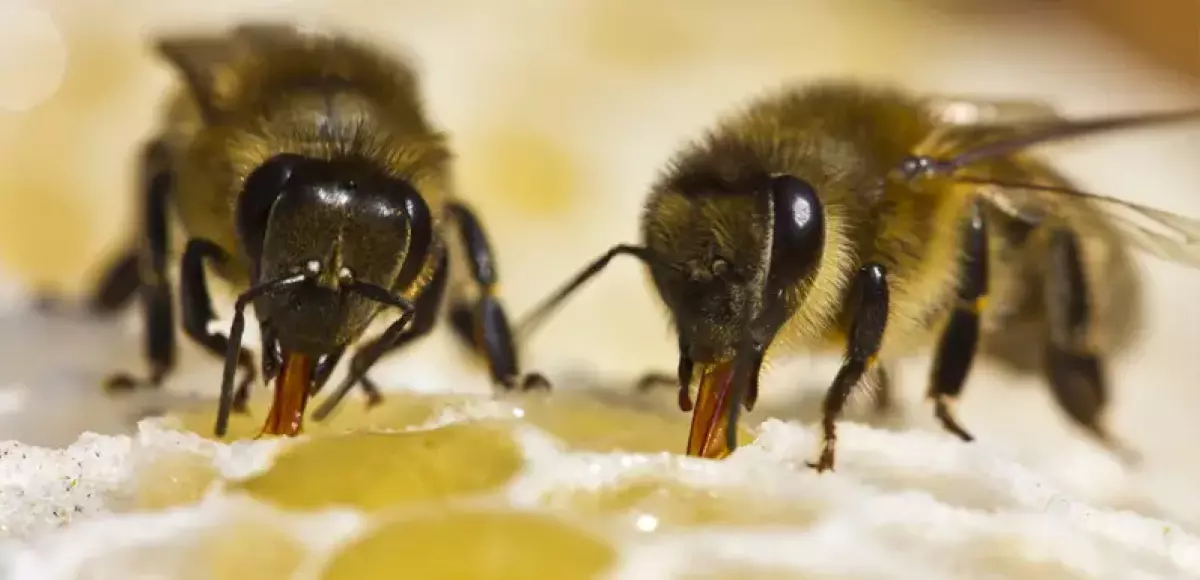Bees are fascinating creatures that are constantly on the move, collecting nectar and pollen from flowers. But have you ever wondered how long they can go without food? The answer may shock you! In this article, we will explore the survival capabilities of bees and delve into the factors that determine their lifespan.
The Life Span of Bees
Worker bees, the backbone of the hive, have a relatively short life span of about six weeks during honey production seasons. These tiny yet mighty bees are essential for the survival of the colony. They work tirelessly to ensure the queen's needs are met and the hive thrives.
Honey bee colonies are made up of three adult castes: queens, workers, and drones. Queens have the longest lifespan, as they spend their lives laying eggs inside the hive and can live for several years. On the other hand, drones, or male honey bees, have a short life span as their main purpose is to mate with the queen.
Feeding and Digestion
Bees have two stomachs - a real one and a honey stomach. The real stomach is responsible for digesting food, while the honey stomach acts as a temporary storage facility for honey. When trapped indoors, bees can rely on the honey stored in their honey stomachs to increase their flying time and search for possible food sources.
But what happens when bees don't have access to food? Starvation leads to a decrease in flying time for honey bees. Grounded bees quickly starve to death if they cannot find any food. A bee trapped indoors without food cannot survive for more than a few hours. Starvation can also lead to dehydration, which can be fatal.
How Long Bees Last Without Food
The duration bees can survive without food varies depending on the type of bee. Here's a general breakdown:
- Drone Bees: These male bees would only last a few hours without food.
- Worker Bees: These hardworking bees can survive for many hours, up to 24 hours, without feeding.
- Queen Bees: If a queen bee is separated from her hive, she would only survive for a maximum of two days.
It's important to note that bees need to store honey as a reserve for times when they don't have enough nectar to feed on. They will fly long distances in search of new sources of pollen and honey.
 Bees deposit nectar in the honeycomb to form a winter store of food.
Bees deposit nectar in the honeycomb to form a winter store of food.
What Happens When a Queen Bee Dies?
The queen bee plays a vital role in the bee colony. When a queen bee dies, the workers start to look for a new queen. If they cannot find a suitable replacement, the colony will eventually die. The queen is the only bee that can lay fertilized eggs, and her pheromones help to keep the colony orderly and productive. Without a queen, the scent of her pheromones diminishes, causing unrest among the colony members.
The Impact of Food Deprivation on Bees
Bees will start to show signs of starvation within 24 hours without food. Crawling around, flying in circles, and building nests high in the air are some behaviors exhibited by starving bees. Additionally, bees that are close to death may cling to flowers and appear lethargic.
Honey bees store honey in the hive for times when nectar-secreting flowers are scarce, particularly during winter. It is crucial to monitor the amount of stored honey to prevent starvation. Moving bees to areas with abundant nectar-yielding plants can help prevent starvation.
How You Can Help Bees
Bees are integral to our ecosystem, and their declining population is a cause for concern. To support these valuable pollinators, you can:
- Plant flowering plants near your home to provide bees with a diverse source of nectar.
- Avoid the use of pesticides that may harm bees and other pollinators.
- Learn about beekeeping or support local beekeepers who prioritize the well-being of their bees.
- Educate others about the importance of bees in our ecosystem and how they contribute to food production.
Remember, every small action can make a difference in preserving and protecting these remarkable creatures.
In conclusion, bees are resilient insects that can survive for hours or even days without food, depending on their caste. However, it is essential to ensure that bees have access to enough food to sustain themselves and their colonies. By understanding their needs and taking steps to support them, we can contribute to the well-being and survival of these incredible pollinators.

















